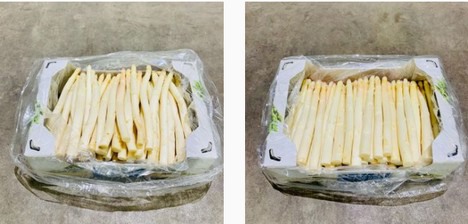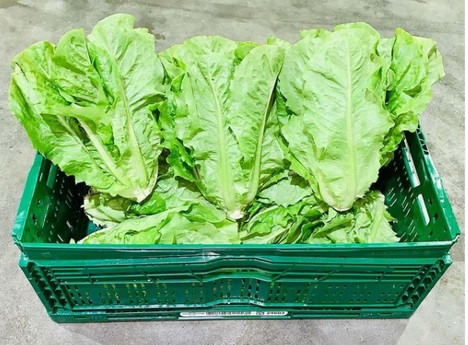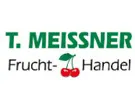The German asparagus and strawberry season is now slowly picking up speed, despite the weather-related delays. "At the moment, the supply situation for strawberries is very tight. Therefore, we are now increasingly resorting to Dutch goods. However, the auction prices vary extremely quickly, there is obviously a lot of movement on the market," explains Tom Meissner, managing director of the fruit trading company of the same name based in Kassel, Hesse.
The southern European season is now drawing to a close, but is needed to supplement demand volumes. "We have already taken Spain out of the program due to increased quality problems. Instead, we are now sourcing supplementary goods from the northern Italian growing region of Verona," Meissner says. The Dutch strawberries are currently traded on average at 3.50-4.00 euros/500g punnet; Italian batches fluctuate around 2.00 euros/500g punnet.

Tom Meissner is currently trading strawberries from Germany, the Netherlands and Italy. Pictured: the first Dutch greenhouse strawberries of this season arrived about a month ago.
Local asparagus available to meet demand
When it comes to asparagus, the Kassel-based company cooperates closely with a regular supplier base in the surrounding area, from whom all qualities and grades are sourced and marketed accordingly. Meissner: "Until week 15, we offered asparagus from Spain, Italy and Holland; in the meantime, German pale and green asparagus is available to cover demand despite the cold snap." Price-wise, the pale asparagus (depending on quality) is between 2.50 and 10.00 euros/kg on sale, green asparagus is traded around 10-12 euros/kg.

Hessian asparagus class II (left) and I (right).
Green asparagus in particular has caught up strongly in recent years and is showing strong growth rates both in cultivation and in trade. The impact of the ongoing Corona pandemic is also noticeable in the asparagus market, Meissner adds. "Peeled asparagus is traditionally needed primarily in the restaurant and foodservice industry. Due to the gastro closure, handling volumes are significantly below previous years."
The family-owned company's third, regional sales mainstay is its regional salad selection. "Since week 18, we have been drawing from the full in southern Hesse with good quantities and qualities. Two weeks earlier, the first greenhouse lettuces arrived from the Palatinate. In terms of demand, Lollo Bionda in particular is well received, while mixed lettuce is more of a gastronomic product and is therefore sold less. We will be offering German iceberg lettuce in week 20 at the latest, so we are now using Spanish products to tide us over," says Meissner.

South Hessian open field lettuce
Lower sales in total
Despite the noticeable effects of the COVID 19 crisis, the fruit wholesaler is optimistic overall. "During the first lockdown from March 2020, direct imports from southern Europe tended towards zero and we switched to Holland and Belgium to be on the safe side. During the non-lockdown period, business then normalized to some extent and we were able to roughly maintain sales. Then during the second lockdown, there was another drop in sales because of the elimination of the Christmas markets."
In the meantime, Meissner says the fruit industry has been able to adapt to the situation to some extent. "We are definitely recording fewer sales in total, but we are able to roughly compensate for this by means of internal changes in logistics and human resources. We are now hoping for a reduction in the incidence value soon, so that there will also soon be the first relaxations in Hesse."
For more information:
T. Meissner Frucht-Handels-Gesellschaft mbH
Tom Meissner
Falderbaumstraße 5
34123 Kassel
Tel (0561) 78 176-0
Fax (0561) 78 176-30
tom.meissner@meissner-fruchthandel.de
www.meissner-fruchthandel.de
